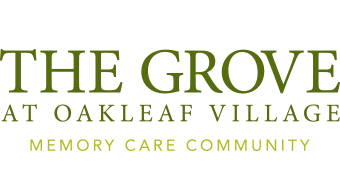What Is the Difference between Assisted Living and Memory Care?
When Mom or Dad needs the care you can’t provide, there are a number of options at your fingertips…from independent living and skilled nursing to assisted living and memory care.
If your loved one struggles with memory loss—but still enjoys independence—you’ve probably ruled out independent living options and skilled nursing.
While Mom doesn’t need a 1,200-square-foot cottage…she certainly isn’t ready for the hospital-like atmosphere of a nursing home.
Your remaining options?
Assisted living and memory care.
Assisted living and memory care both provide similar comforts, such as…
- Three meals a day.
- One-on-one support.
- Group activities.
- And more.
Given their overlap, these two senior care options may seem to be the same.
However, assisted living and memory care can have some important differences.
Keep on reading as we explain three important distinctions you should note.
1. Assisted Living and Memory Care Have Differences in Programming
Both assisted living and memory care will provide programming involving activities, social interaction, and life enrichment for your loved one.
However, it’s important to recognize that assisted living programming and memory care programming can differ in their goals.
An assisted living community may focus on maintaining fitness, exploring sights and sounds in the surrounding community, and other experiences.
In contrast, a memory care community tailors programming around the unique needs of dementia.
For instance, the right memory care community will avoid environments that cause confusion and offer activities involving the familiar (e.g., folding laundry).
2. Assisted Living and Memory Care Communities Can Have Different Building Designs
If Mom or Dad suffers from dementia, he or she may experience wandering and confusion.
Many times, an assisted living community won’t accommodate these challenges.
Large open spaces, a big dining area, and other community features suit an active older adult…who doesn’t struggle with significant memory loss.
In contrast, memory care communities can offer a design suited for Mom or Dad’s unique needs.
For instance, at The Grove, we use an ability-based neighborhood approach. Each neighborhood in our communities…
- Offers a smaller, familiar environment and is designed to hold 14 residents or less.
- Provides a natural wayfinding system so your loved one can stroll in a natural pattern, instead of wandering up and down a hall.
- Contains an open kitchen, small dining room, and living area…evoking a homelike environment.
3. Assisted Living and Memory Care Can Differ in Caregiver Training
Another dividing line between assisted living and memory care communities is caregiver training.
A number of memory care communities have team members trained to address the special challenges of dementia.
After all, it doesn’t require much training to help Mom brush her hair. But it does require skill to help Dad deal with sundowning, confusion, or the mood changes that come with Alzheimer’s.
At The Grove, we place a high priority on caregiver training.
Our memory care communities exceed the state requirement, providing five times more training for our caregivers from an NCCDP Certified Dementia Practitioner®.
Whether it’s caregiver training or community design, the reality is, there can be a big gap between assisted living and memory care communities.
If your loved one has dementia, it’s important to choose an environment that truly understands—and meets—your parent’s needs.
Discover a memory care community that does just that at The Grove.
When you explore our community, you’ll see our care in the little details. From the design of our neighborhoods to the family-style meals we provide, life at The Grove is purpose-built around your loved one’s needs.
Schedule a visit to The Grove Toledo, or plan a time to see The Grove Columbus, our newest memory care community…and discover what makes our memory care unique.






